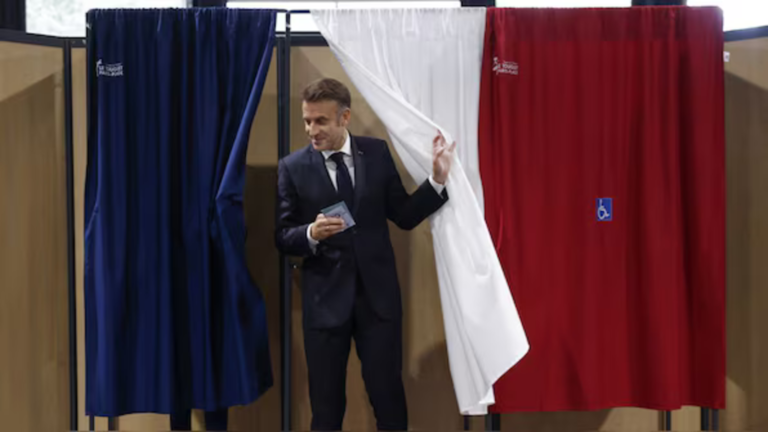President Emmanuel Macron announced the dissolution of parliament and called for general elections three years earlier than planned.
The move stunned France and the world. The sudden decision also raised questions about Macron’s motives and the future of French politics.
Political commentators see Macron’s gamble as an attempt to consolidate power and thwart the rise of Marine Le Pen’s far-right National Rally party.
The RN made significant gains in the European Parliament elections, dealing a blow to Macron’s centrist coalition.
By calling a sudden general election, Macron They hoped to take the RN by surprise and rally the French people against the far-right wave.
Who are the main characters?
The election saw a three-way battle between Marine Le Pen, leader of the National Rally (RN), the left-leaning New Popular Front, and Macron’s centrist coalition.
What are the results?
The New Popular Front emerged as the largest party but fell short of a majority, and the election saw a surge in support for the left-wing coalition, with many voters choosing to keep the far-right out of power.
But the result also boosted support for the RN, which increased its number of seats in parliament after Macron’s centrist coalition suffered setbacks in the recently concluded elections.
The outcome of the election has significant implications for France and the European Union, which is in political paralysis in the run-up to the Olympics and has its leadership in the bloc under scrutiny.
The result has left France in political paralysis with no clear candidate for prime minister, and Macron’s office has said no decisions will be made until a new National Assembly is formed.
This means Macron’s centrist coalition will be unable to implement business-friendly policies, which could make it harder to pass the budget.
France’s politics are unstable, with deep divisions over a host of issues including taxes, immigration and Middle East policy making it difficult for lawmakers to forge cross-party agreement.
The country has never before seen a parliament without a dominant party, and these unprecedented circumstances mean lawmakers need to work together to agree on government positions and legislation.
President Macron’s decision Sudden election Questions are being raised about his leadership and the future of French politics.
As France navigates this uncertainty, one thing is clear: the country is entering a period of political maneuvering that will determine the course of its future.

